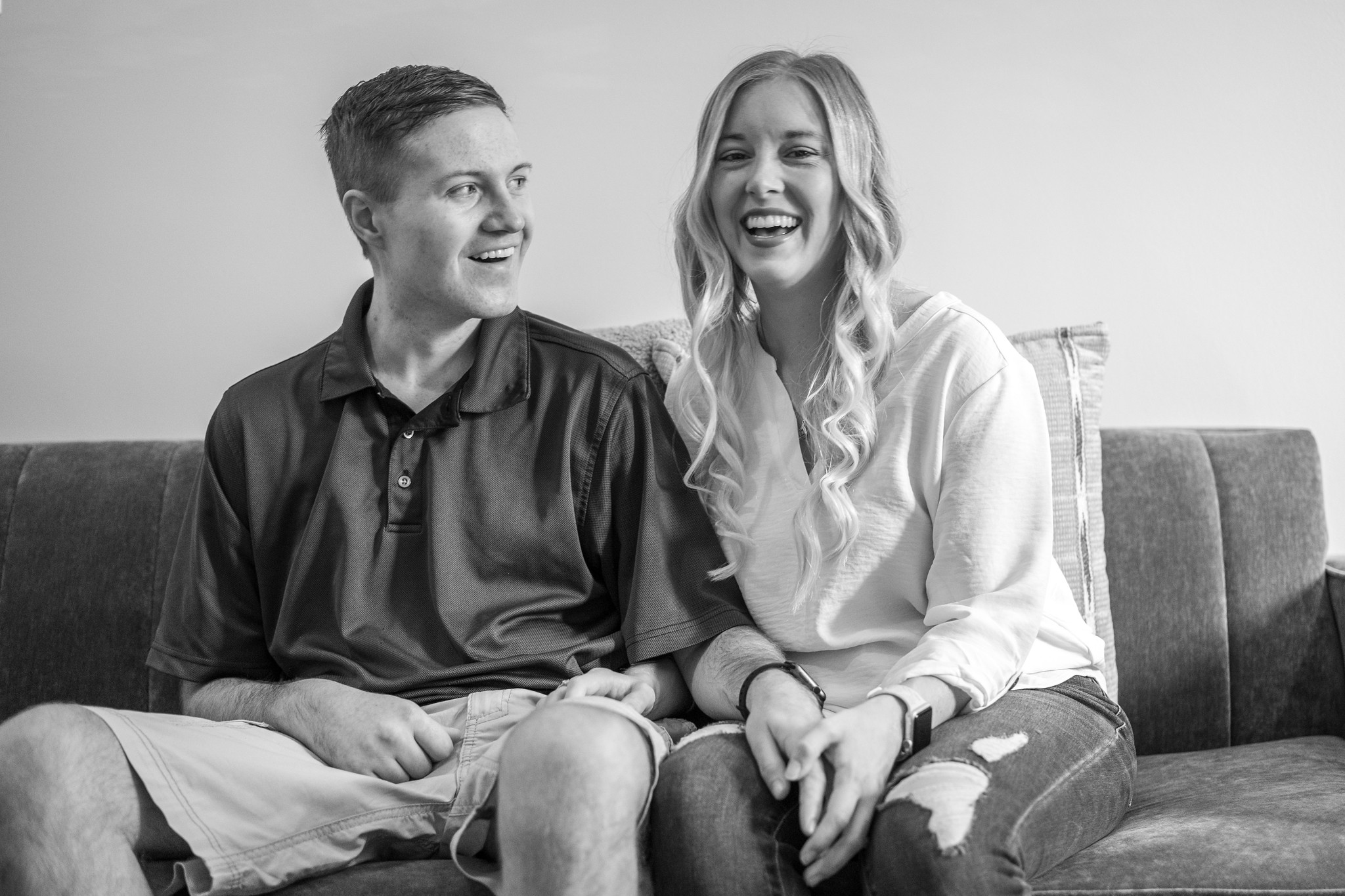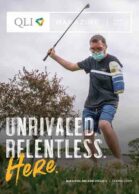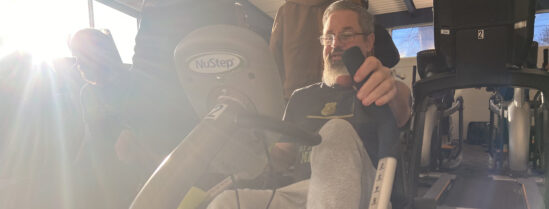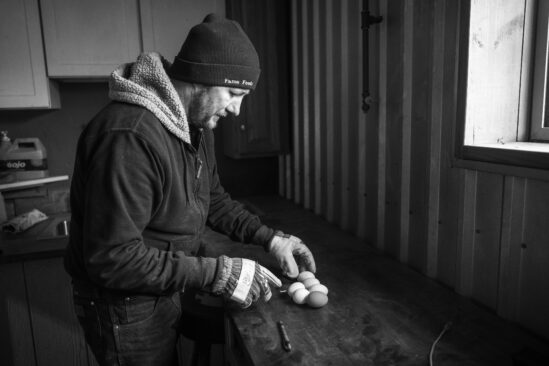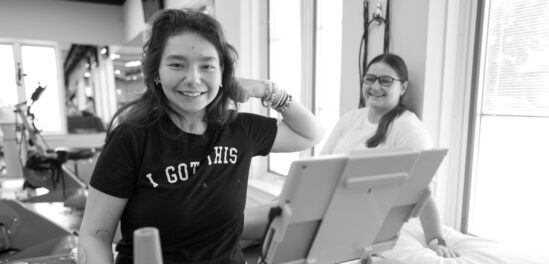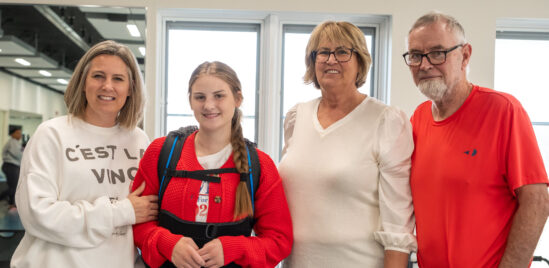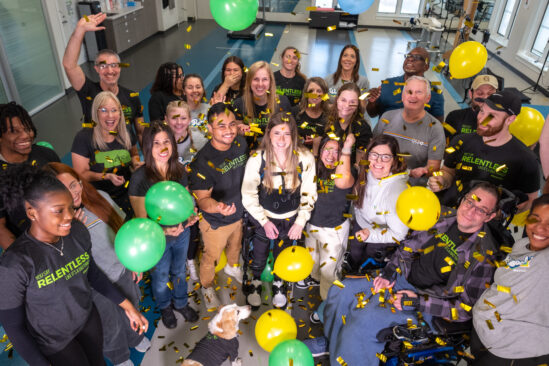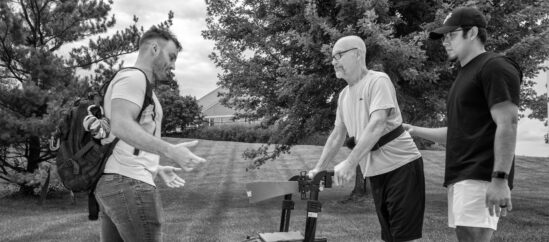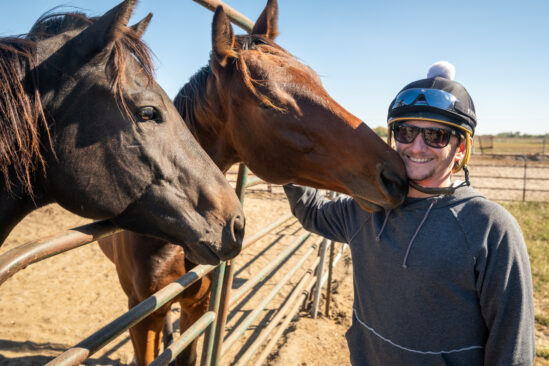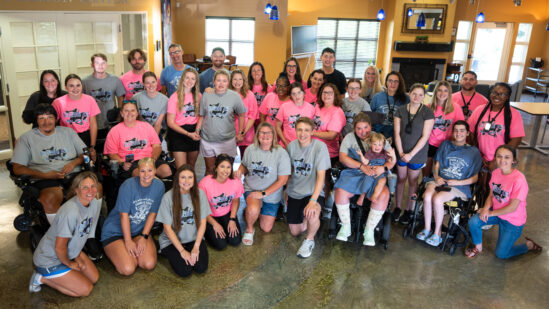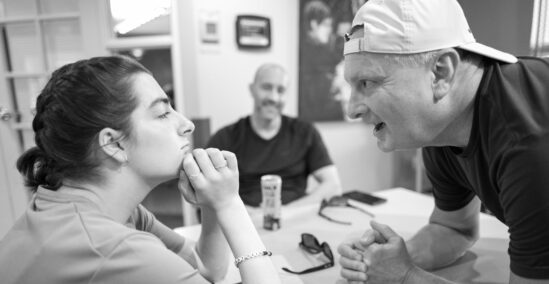He’s been Thatcher all this time. The same charismatic figure, ever since his youth. Thatcher the friend, and yes, even the jokester. If you put him in a room with 100 strangers, and within a few hours, he’ll be friends with all of them. But if you look deeper, it isn’t the fast wit or the easygoing nature that defines him. To describe himself in one word, Thatcher Skolout simply says “faithful.”
Shelby, Thatcher’s wife, looked back on their time together, growing up in the small town. Their relationship started towards the end of high school. After college, they married and settled for a brief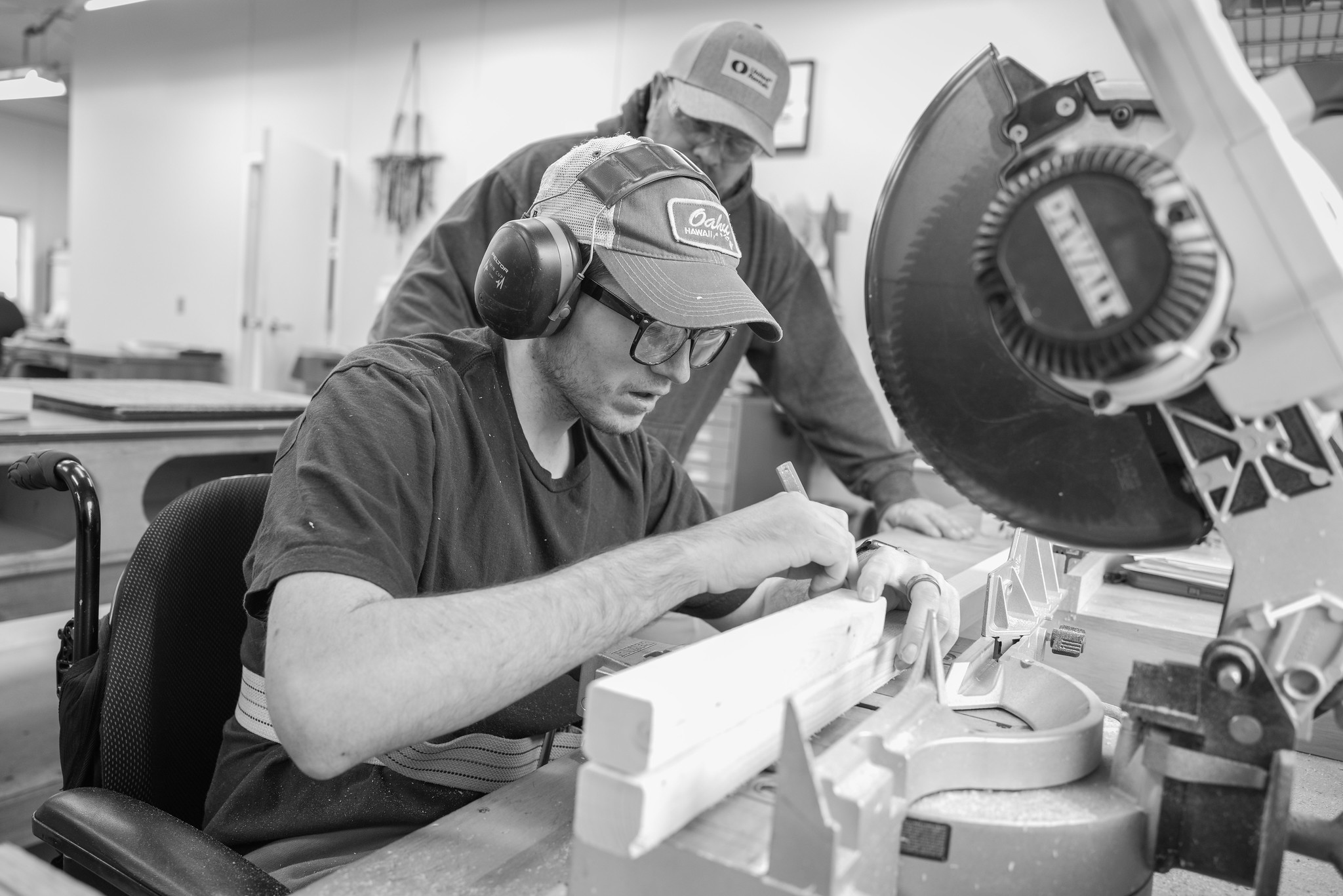 time in Omaha, with Shelby employed for a time, coincidentally, by QLI. After she finished nursing school, Shelby and Thatcher returned to McCook and the community that formed them. They set about their lives, Shelby working as a nurse at Community Hospital, Thatcher working his way up towards the role of real estate appraiser at Farm Credit Services of America. Over the next two years came a house, a son, Jack, and a dog, Kevin. Their life was rooted in faith and family.
time in Omaha, with Shelby employed for a time, coincidentally, by QLI. After she finished nursing school, Shelby and Thatcher returned to McCook and the community that formed them. They set about their lives, Shelby working as a nurse at Community Hospital, Thatcher working his way up towards the role of real estate appraiser at Farm Credit Services of America. Over the next two years came a house, a son, Jack, and a dog, Kevin. Their life was rooted in faith and family.
It started as a side hustle that nearly grew into its own thing—an opportunity to further support his family. On a stretch of property owned by his father, Mike, Thatcher engineered, welded, and constructed barbecue smokers from massive 1000-gallon propane drums. Thatcher, ever-diligent, considered and implemented every safety precaution.
It was, plainly and simply, an unfortunate accident. As Thatcher was welding a tank in March 2024, some pooled propane remained in the tank, causing a massive explosion that was felt by others in the surrounding houses. Thatcher’s father was alerted to the explosion at the property. Mike assumed the explosion happened with his son a safe distance away and that once he arrived, he would help Thatcher contain the fire and the damage. Unfortunately, that wasn’t the case.
Thatcher was thrown fifteen feet as a result of the explosion. Almost miraculously, he had no burns on his body—he was still alive, but just barely. Shelby recalls the blur—from the initial phone call for help to the hurried transport to the hospital. “There was a point I thought I was going to become a widow,” she reflects. And the strangeness of the circumstances, that the very hospital treating her husband in was the one she worked at, her coworkers working fervently to save Thatcher’s life. She asked them directly what could happen. It didn’t look good, they told her. The pain and fear threatened to consume the family.
What did the Skolouts do? They grounded themselves in their faith and cast all the pain and fear to the heavens.
They formed bonds and friendships with other families who were, as Mike recalls, “just ten days behind us in the process. We saw ourselves in them.” And yet, moving from place to place, with the whole host of unknowns that went with it, was very difficult for the family. “You get set with the people you’re around,” says Mike, “you start to build trust with those you work with, but before you know it, you’re off to the next hospital.”
The next step for the Skolouts was Madonna Rehabilitation Hospital in Omaha, NE. It proved to be a fruitful step in reaching medical stabilization and starting Thatcher’s rehabilitation. Then, Thatcher was ready for the next phase.
For that, the Skolouts chose QLI. The individualized approach and the synthesis between care and living spoke to them and what they wanted for Thatcher’s future. Initially, Thatcher’s ability to buy in was limited. He was still very weak from the injury. His brain was healing which caused him to tire easily. It was difficult for him to offer full effort and his ability to attend to any task was constrained. It was tough, and that toughness came in for a brief moment and resonated deeply and terribly, but just as soon as it came in, the pain was diminishing, his faith, the same that his family carried with such stalwart attention was starting to make itself present again.
Then, the moment hit. The “switch,” as his family refers to it. It came about through a series of optimal conditions that allowed for this reinvigoration within Thatcher’s program—it was not one thing or the 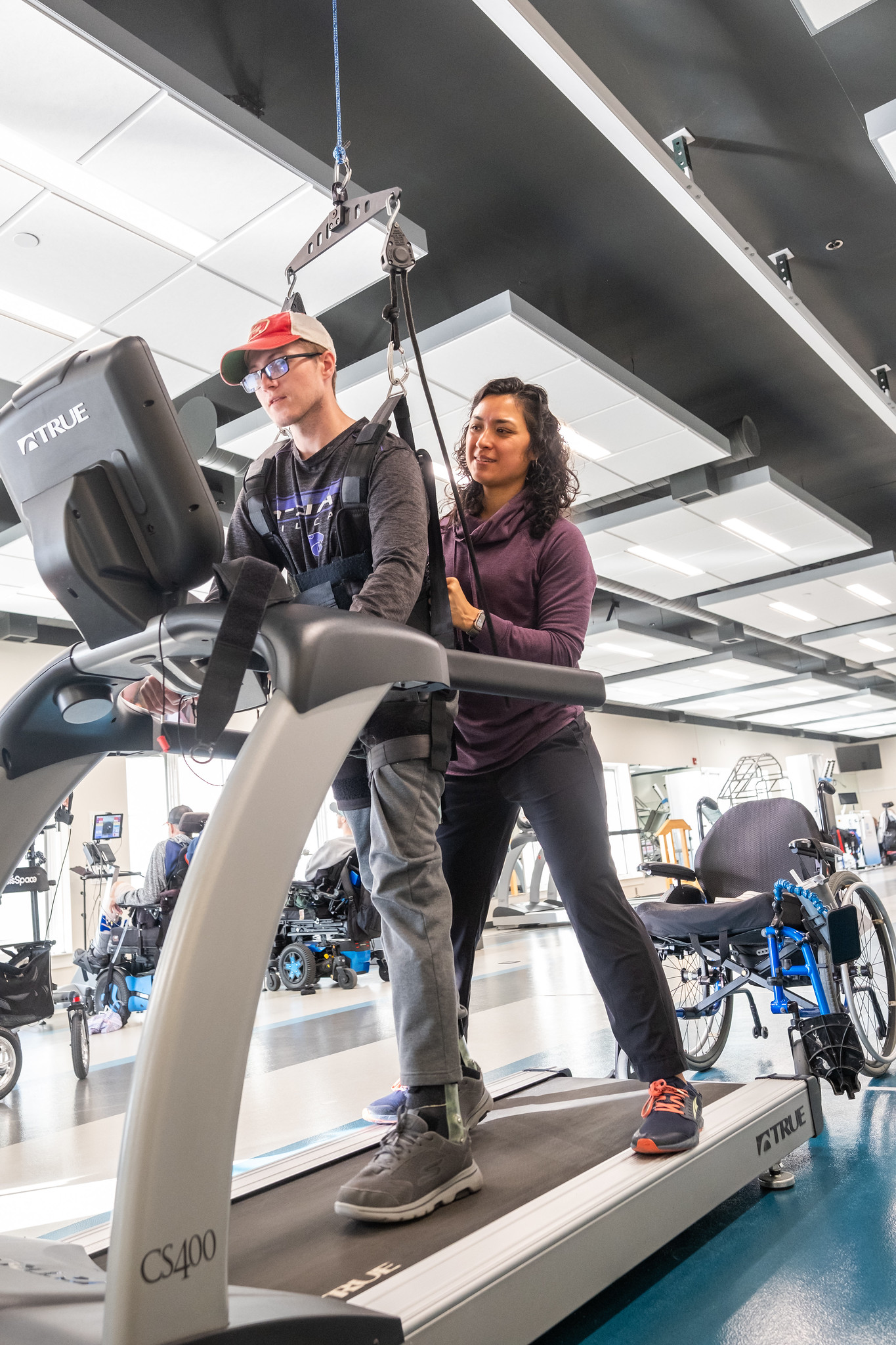 other—not simply the time that had passed after the injury—time for the body to heal and greater cognitive awareness to emerge, not simply the stellar clinical and direct care teams behind him, the specialized programming, or the community and environment Thatcher was growing within, but rather the potent combination of all. His family and team never gave up and things began to change.
other—not simply the time that had passed after the injury—time for the body to heal and greater cognitive awareness to emerge, not simply the stellar clinical and direct care teams behind him, the specialized programming, or the community and environment Thatcher was growing within, but rather the potent combination of all. His family and team never gave up and things began to change.
He now recognized what was at stake, and could see the door to what was possible. In his physical therapy sessions, his last push to achieve ten steps became now fifty. The switch flipped and raised the limits and possibilities for what he was capable of.
His team doubled down. Knowing how important family and serving others was to Thatcher, they used it as a foundation for his rehabilitation.
Like being a father. Simply being independent for himself is not what gives Thatcher life. His independence was simply a mechanism to allow him to provide for his family and to serve and support others.
“Front of mind when it came to working with Thatcher,” says speech-language pathologist, Zoey Bertsch, “were executive functioning skills like planning and problem-solving that can be difficult after a brain injury. We would then generalize these strategies to a functional setting that was meaningful to him, such as singing a nursery rhyme to his son, Jack.” Together they focused on vocal control, clarity, and volume, speaking in a didactic manner.
General strength training and gait/mobility were also top of mind. Similarly, it began with Jack. Thatcher and his therapists worked to safely transfer down to floor level so he could play with Jack. Then he graduated to playing at seated level and then to standing. In ambulating, his physical therapist Anna Schaffart incorporated AFOs (ankle-foot orthoses) that would better enable Thatcher to walk in a straight manner, planting his ankle firmly on the ground, and envisioning a future of constant activity with Jack.
At his heart, Thatcher is a provider, who loves to build relationships and foster a sense of community 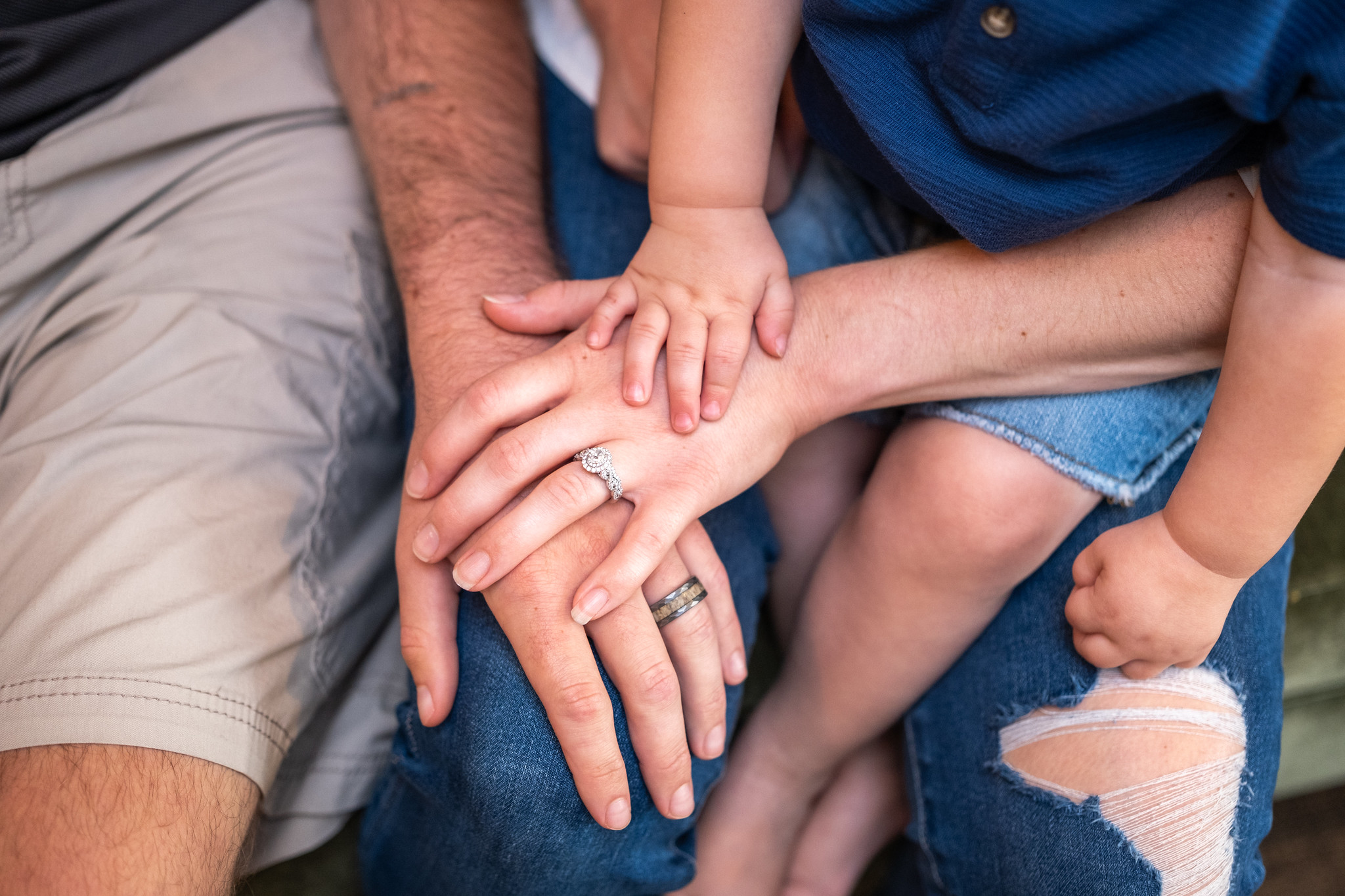 with those he’s around. Grilling for a crowd was not just a way to put into action the physical side of his recovery, with balancing and standing stably while flipping burgers, but also the emotional goal of bringing people together to enjoy a meal that he had put significant effort into. “Within two weeks,” life path specialist Ricci Anderson remembers, “we had done three grilling assessments. With support, Thatcher could stand and cook burgers, even doing so for a house potluck one night.” Not only was Thatcher the committed family man once more, but he was again the friendly and caring neighbor.
with those he’s around. Grilling for a crowd was not just a way to put into action the physical side of his recovery, with balancing and standing stably while flipping burgers, but also the emotional goal of bringing people together to enjoy a meal that he had put significant effort into. “Within two weeks,” life path specialist Ricci Anderson remembers, “we had done three grilling assessments. With support, Thatcher could stand and cook burgers, even doing so for a house potluck one night.” Not only was Thatcher the committed family man once more, but he was again the friendly and caring neighbor.
Thatcher continued to progress in the following weeks as another milestone crept up—the Skolout’s fourth wedding anniversary. Finally, after the tiresome months of unknowns, battles, and recovery, Thatcher and Shelby at last had something to celebrate and enjoy together. Thatcher’s clinical and resident team started scheming and planning with him to make the date special, also recognizing it dually was a fantastic therapeutic opportunity. Through this planning and preparation, the shopping trip to get everything ready, and reflecting on where the last four years have taken them, and will continue to, the Skolouts could be fully connected once more. During a portion of the date, the Skolouts had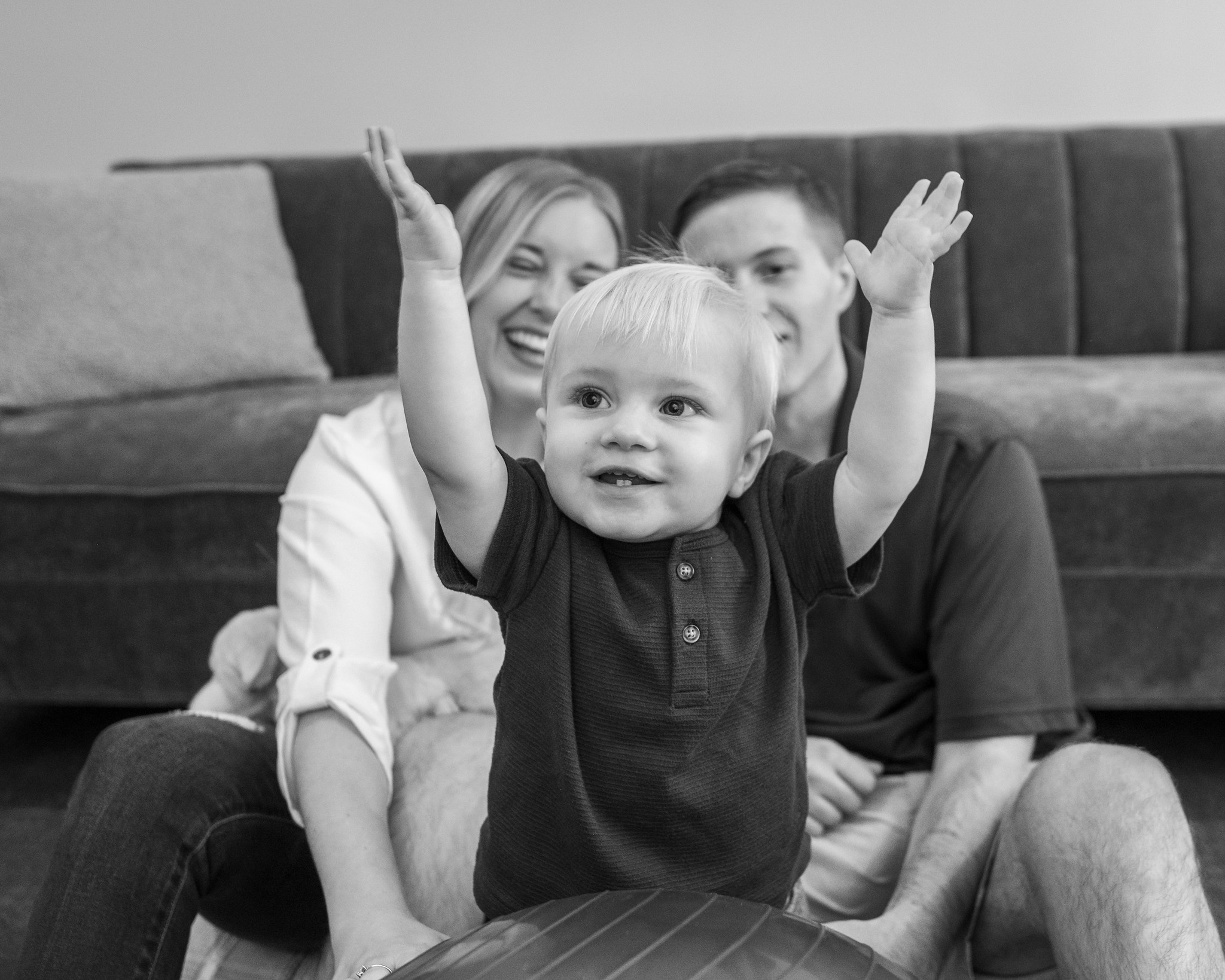 family photos taken. In them, they play with Jack, resonating and reflecting a deeply held love for one another. Any outsider looking at the photos would not infer the difficulties of the past few months but would know beyond all doubt that this is a family that cares and grows together. “My family means everything to me,” says Thatcher.
family photos taken. In them, they play with Jack, resonating and reflecting a deeply held love for one another. Any outsider looking at the photos would not infer the difficulties of the past few months but would know beyond all doubt that this is a family that cares and grows together. “My family means everything to me,” says Thatcher.
Thatcher and Shelby are again going through the rhythms of life they worked so hard to cultivate. This is just the beginning.
“Without the role the team has played,” Shelby reflects, “I don’t know what state we’d be in after we return home. It’s every part of who Thatcher is that he is getting to work on through his recovery.” Thatcher’s eventual return to McCook is coming, but of course difficult to factor in completely. As the family has learned, there is no absolute predictor for the exact timeline for recovery, as so many factors are constantly at work. “To look at the whole picture,” says Shelby, “Thatcher has made remarkable progress in less than seven months, but for us, it can seem so slow at the moment.” Because I’m a nurse, it was innate for me to do his care, but at QLI, it became so easy for me to step back and have the team take over—I trust them completely. I could start getting out of the caregiver role, and start being Thatcher’s wife again.”
Through it all, no matter the exact particulars of the future, the Skolouts know that their faith will remain a constant, always guiding them. “It’s not a matter of “fixing” what has been changed from injury at QLI,” says Shelby, “but providing other parts of your life to always be there—the whole person.”
